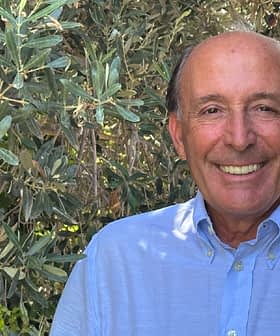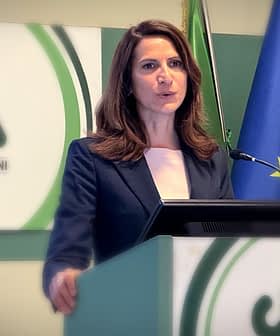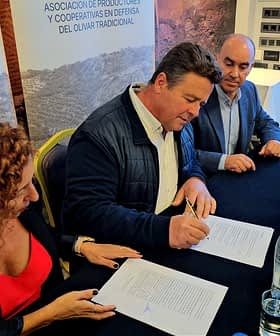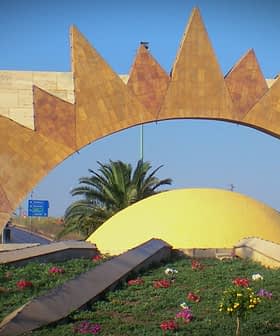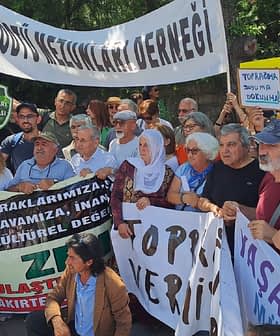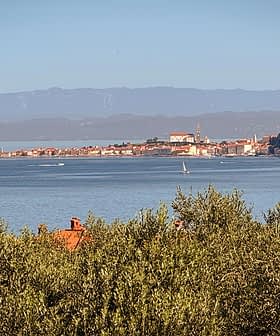Turkey Removes Controversial Article in 'Olive Law'
While the decision was welcomed, olive oil industry leaders fear the issue will crop up again.
The Turkish parliament’s industry commission removed a controversial article from an industrial reform draft law that would have allowed olive groves to be replaced by industrial facilities. The decision was made after the three main political parties reached an agreement, but concerns remain that the issue may resurface in the future, prompting olive growers and industry leaders to remain vigilant.
The Turkish parliament’s industry commission announced earlier this week that it had removed a highly controversial article which would have given the green light for olive groves to be ousted by industrial facilities if deemed to be in “public interest.”
Two things are not touched in this country; a dove, and an olive.
The country’s three main political parties reached an agreement to remove the industrial production package’s second article, which related to investments in olive groves. The proposed changes to the “Olive Law” would have reduced the legal protection of olive trees by re-classifying olive groves with less than 15 trees per decare (1,000 square meters) as open fields. The draft paved the way for industrial units, mines and housing projects to displace ancient olive groves.
Ziya Altunyaldız, deputy and commission head of the Ruling Justice and Development Party told Hurriyet Daily News, “We took the opinions of all segments within a pluralistic democracy mentality and reached consensus as the three party groups. As a result, we decided to remove the olive grove article from the industrial reform draft law.”
While the decision has been welcomed, olive growers and leaders from the olive oil industry fear that the issue may crop up again. This was not the first time that olive groves had been put at risk by the government. Their fears appeared to be justified in a statement made by Faruk Özlü, science, industry and technology minister, who confirmed that the article could be “reawakened.”
Ağaca bakınca beton görenlere karşı #ZeytinAğacınıSavun için Galatasaray’da toplanmaya başladık. Gel gel gel!#ZeytininCanıVarpic.twitter.com/jVL0rutQLU
— K.OrmanlarıSavunması (@kuzeyormanlari) June 7, 2017
Özlü told Hurriyet Daily News, “I want to express that we believe there is no fault in the system of the second article that we put forward. We have always expressed that we are open to alternative suggestions, but unfortunately, we did not receive any suggestion. The problem is not solved by rejecting it. There is a need for a structuring that will take decisions regarding the definition of olive grove fields in Turkey no matter what you say. This draft law may come again 20 times more as long as this need is not met.”
Haluk Yurtkuran, co-founder and president of Adatepe Olive Oil told Olive Oil Times, “We must always be alert against any efforts from the industrialist lobby who will bring back the issue whenever they feel confident again. Our motto is; don’t relax, but stay alert like an olive tree’s lifetime struggle against all dangers.”
A heated debate has raged for weeks over the controversial draft law. Turkey’s Prime Minister Binali Yildirim fuelled the debate with his comment, “It has been presented as if olive groves are being razed for construction. That is wrong. Those who do not want Turkey to gain competitive power are engaging in this manipulation.” He accused the opposition of “presenting it in such a way that it is as if we destroyed olive groves.”
Olive growers, environmentalists, and the general public voiced widespread opposition through social media campaigns, protests and the launch of the “Don’t touch my olive tree” petition, which collected over 31,000 signatures.
Faruk Özlü, minister of science, industry, and technology showed a more sympathetic stance on June 4th, when he announced, “If I know that even one olive tree is going to be cut down because of this law, I will withdraw it.”
The government backtracked somewhat amid the outcry but not enough to appease opponents who felt that a number of key issues threatening Turkey’s olive groves remained.
Ümmühan Tibet, head of the National Olive and Olive Oil Council (UZZK) criticized the government for not taking into account the organization’s opinions when preparing the bill.
Yurtkuran told Olive Oil Times, “We are all happy with dropping of the olive article from the draft in the commission today. This is the joint success of all olive-lovers from various wings of the society regardless of their political preferences.”
He added, “We must first thank the National Olive and Olive Oil Council’s strong standing against this draft along with all public support behind it.”
On June 7th Representatives from Turkey’s olive industry met with Faruk Çelik, the food, agriculture and livestock minister and Faruk Özlü, the science, industry and technology minister, in Ankara to demand that the olive regulation was omitted from the production reform package. The representatives insisted that the regulation was redrafted in consultation with all parties or the existing draft law was revised.
“There are those who want to harm olive trees today,” wrote M. Şaki̇r Başak, the Konak District chairman, in an opinion article.“for the benefit, the profit, the ratios, as if they were to remain forever in the world, their eyes blinded, their spirit lost; They do not hesitate to harm nature, man, and sacredness.”
“Two things are not touched in this country; a dove, and an olive.”


